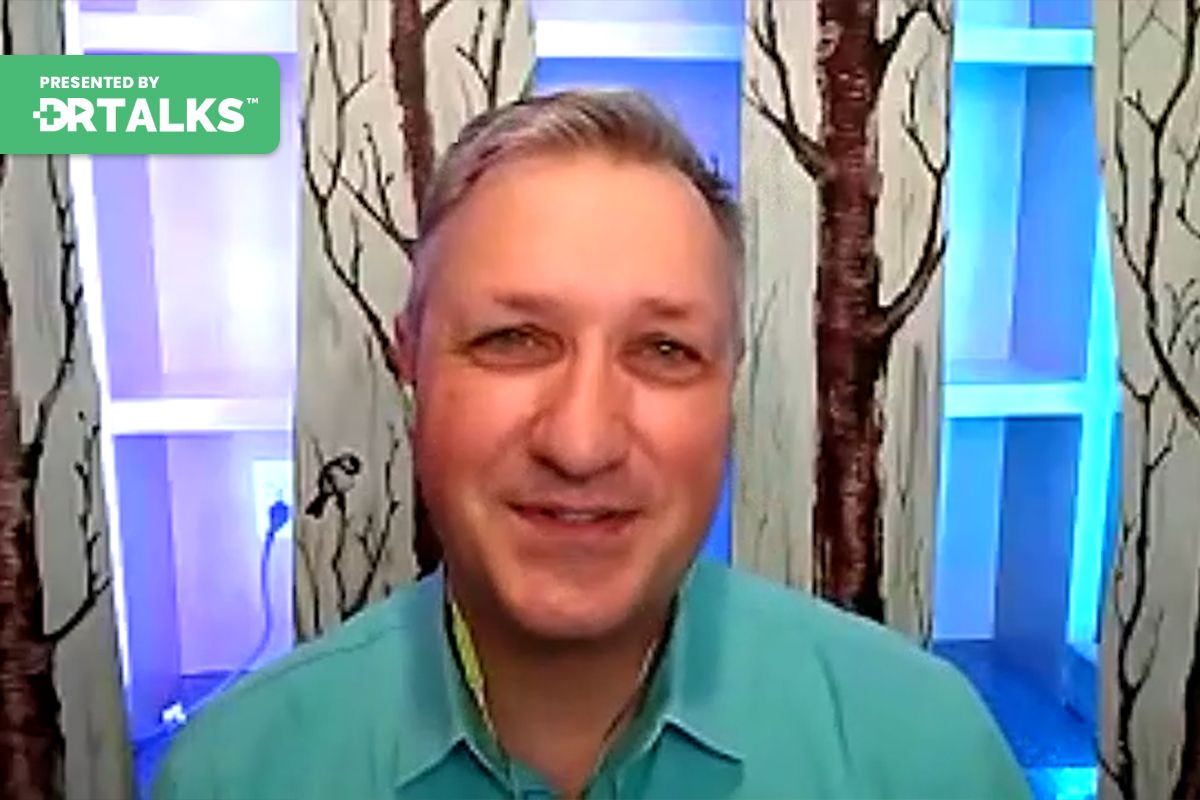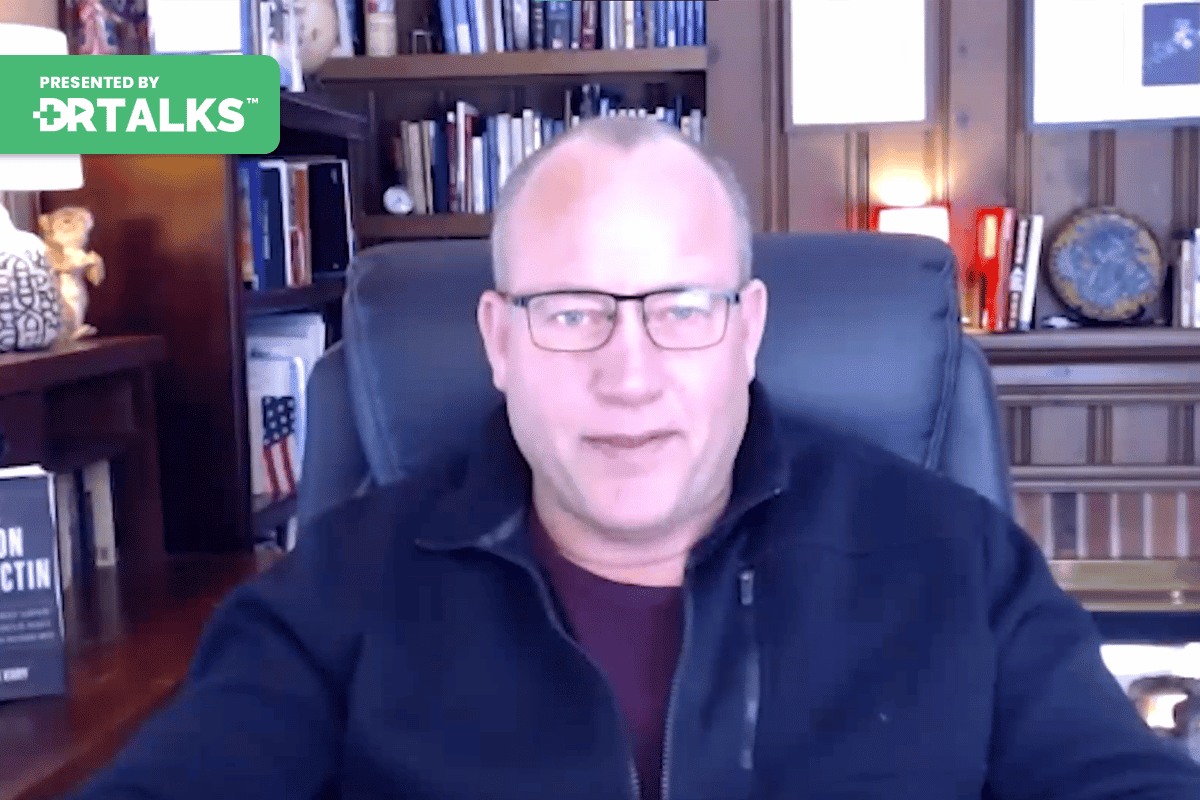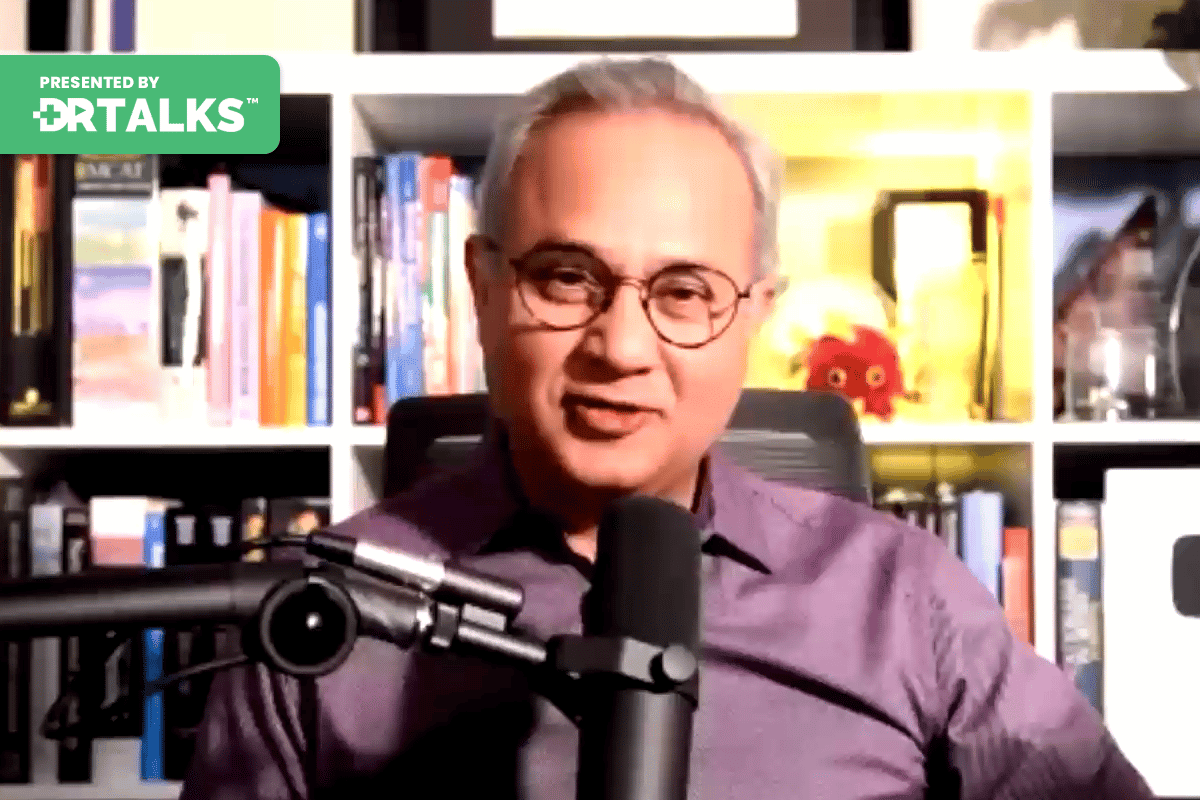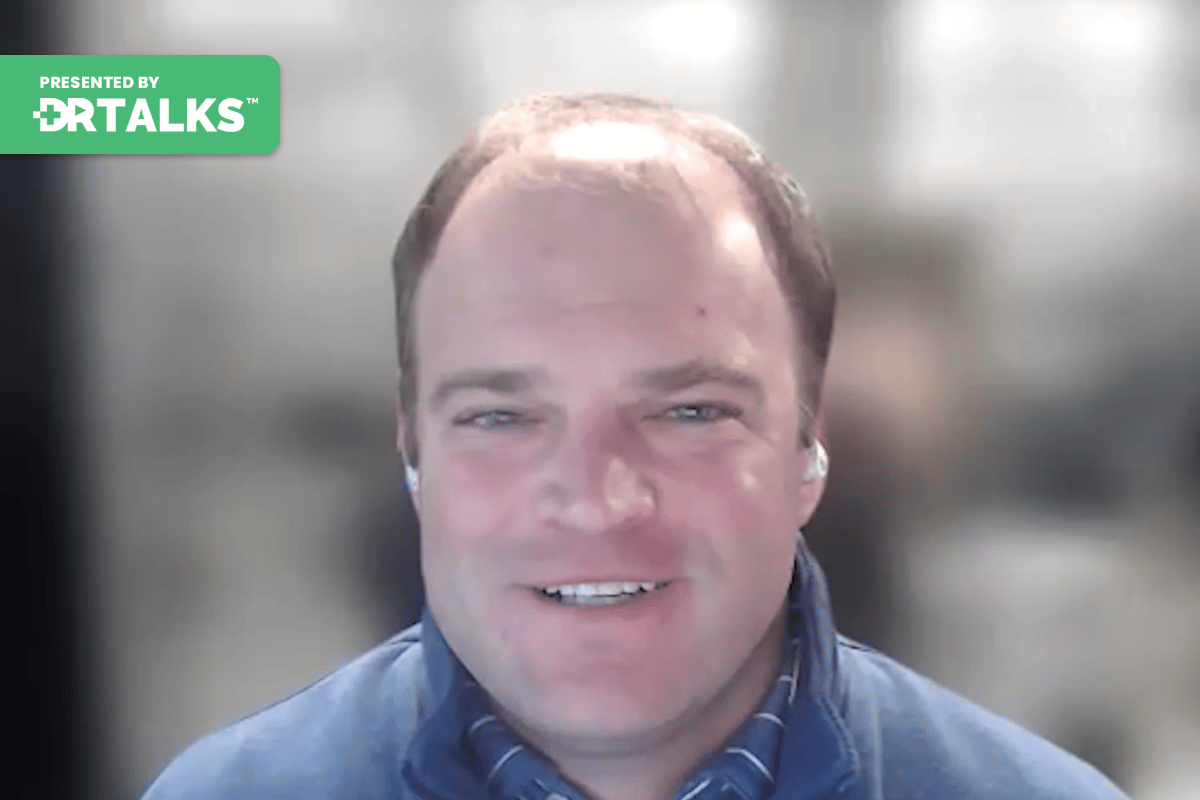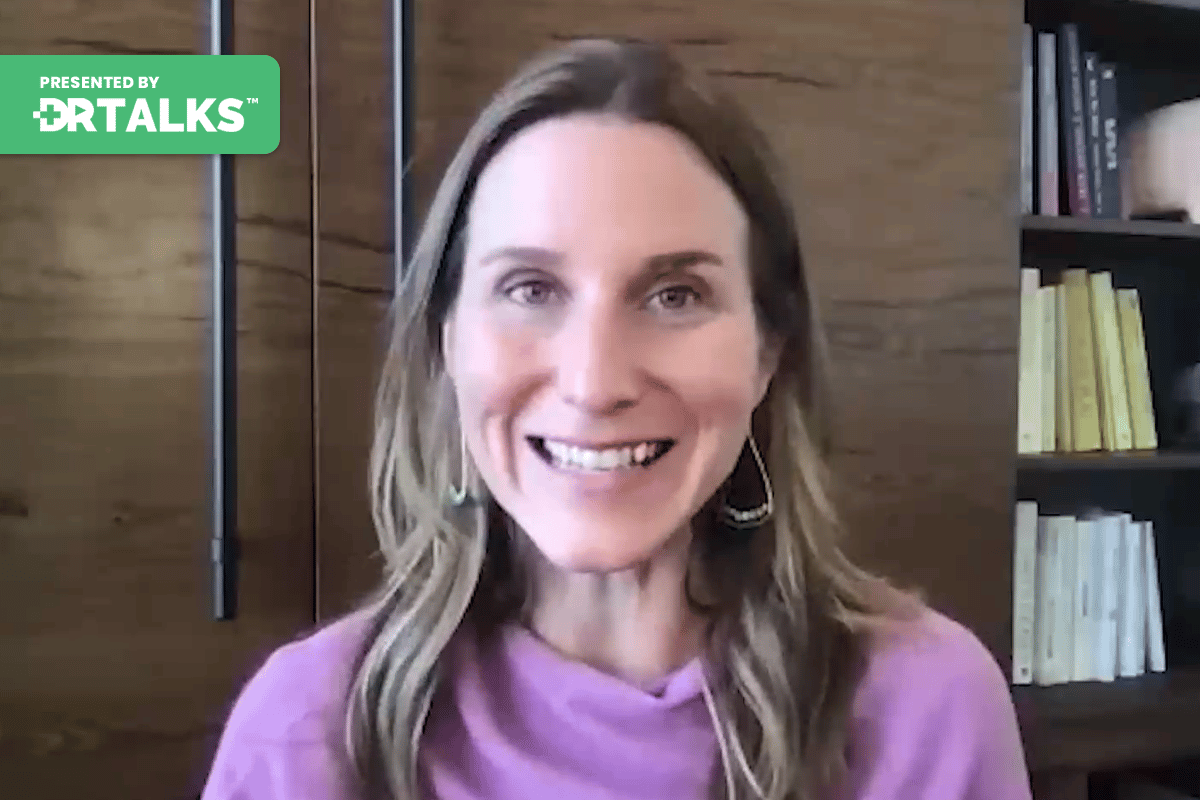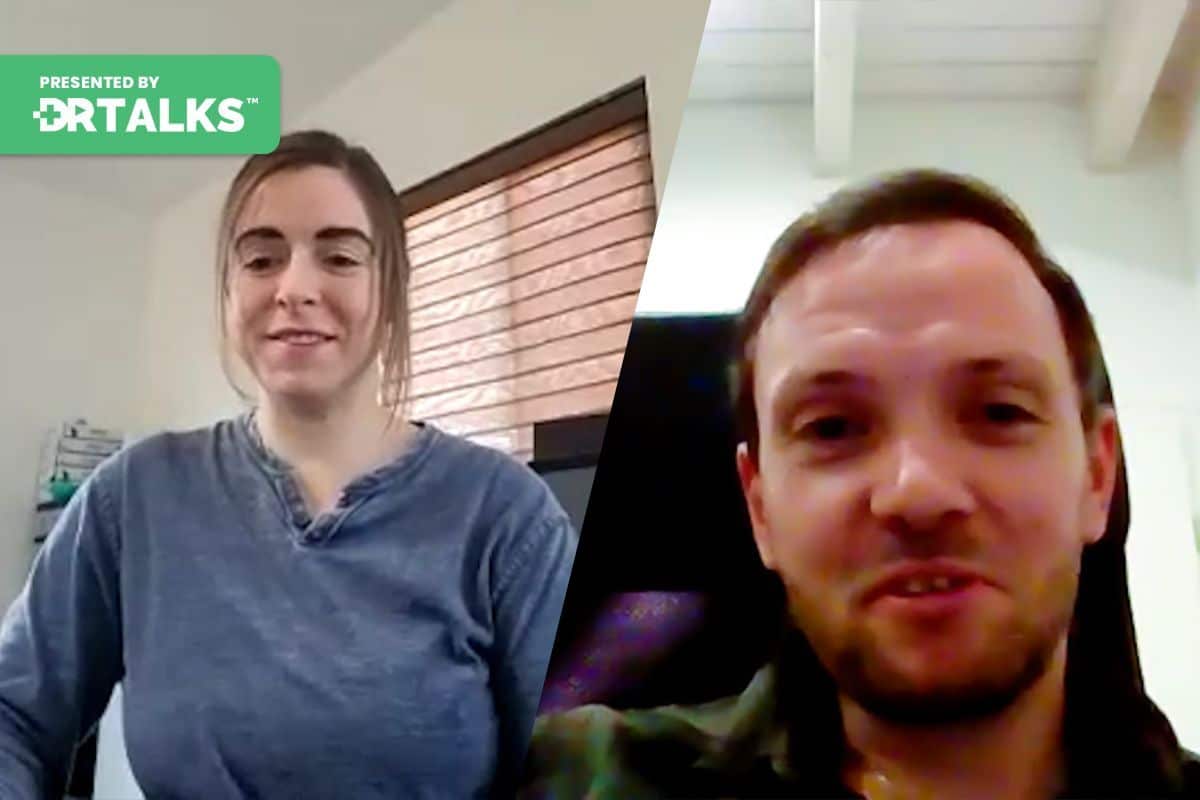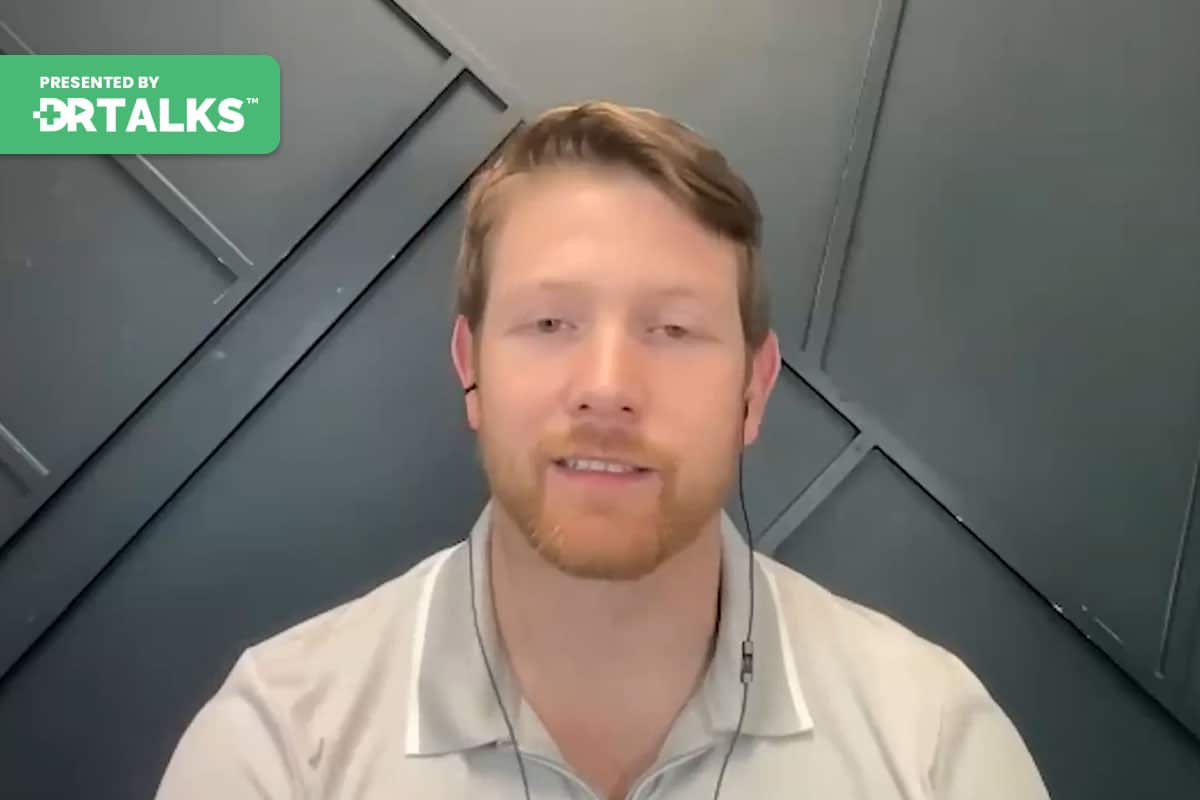Join the discussion below
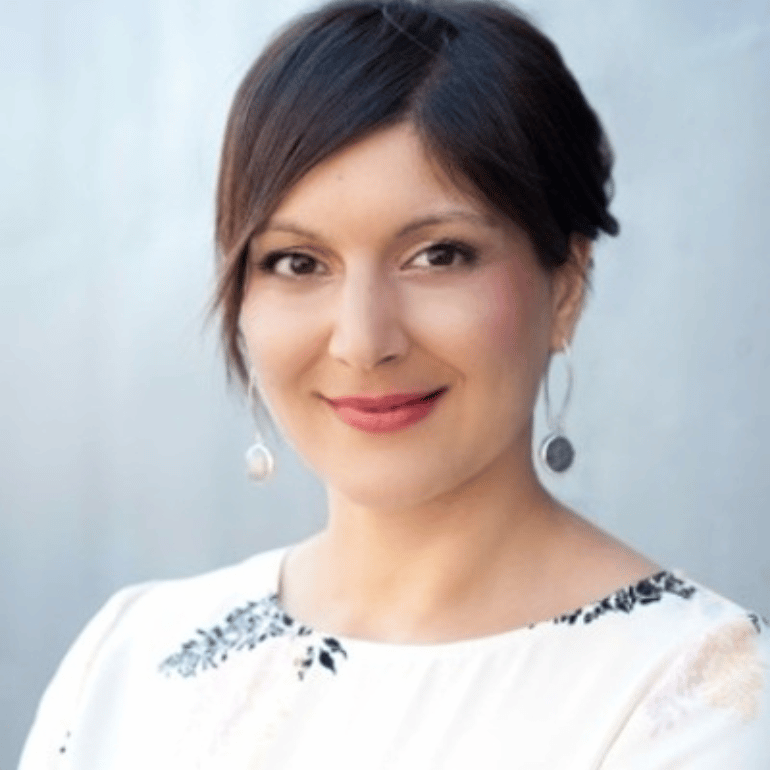
Nafysa Parpia, ND has an independent practice at Gordon Medical associates, specializing in the treatment of Lyme disease and other complex chronic illnesses such as autoimmunity, mold toxicity, fibromyalgia, environmental toxicity and gastrointestinal disorders. Her patients with chronic Lyme Disease are typically those who either do not do well with antibiotics, or prefer... Read More
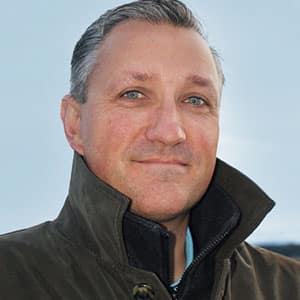
Dr. Rob Downey witnessed his first exceptional clinical outcome in response to functional medicine in 2006 when his natural medicine mentor turned around a severe autoimmunity case via whole food, probiotics and safe, potent anti-inflammatory botanical supplements. When he asked her whether getting Institute for Functional Medicine (IFM) training would... Read More
- You can’t supplement yourself out of a lifestyle deficit
- Resistant, resilience and recovery
- KISS healing protocol
Nafysa Parpia, ND
Welcome to this episode of the long haul chronic fatigue summit. I’m so happy to have with me today. Dr. Rob Downey, Dr. Downey, will you please introduce yourself to our audience?
Robert Downey, MD
Yes, Dr. Nafysa, thanks for having me delighted to do. So happy I’m a family practice M. D. in Alaska and I’m also an institute for functional medicine certified practitioner. I’m 20 years into my conventional career and 14 years into my functional medicine career and I’m a bit of an outlier compared to a lot of functional medicine docs because my clinic is a department of a nonprofit borough owned hospital in Alaska. So I see a lot of cases that cover that whole demographic spectrum young to elderly everyone. And so I think that cross section I get to see including folks that don’t have a lot of resources for supplements, for example, has streamlined my approach. So today’s a fun opportunity to talk about, keep it simple superstar away to kind of distill this down for folks that were like, oh my gosh, this is so important. But I also kind of feel overwhelmed because that’s what I’m seeing in my clinic.
Nafysa Parpia, ND
Thank you. It’s going to be an important conversation because I think there is there’s a lot of, I mean there there’s a lot of complexity to this and then that’s thrown at patients but they need they need they need to be help, they need to be walked through this journey and they need that simplicity, especially when there are there are not enough resources. So I’m just so happy you’re doing what you’re doing and that you’re gonna share that with us all.
Robert Downey, MD
It’s a great, great privilege to get to be with you and to get to work with our participants. So thank you again.
Nafysa Parpia, ND
Thank you. So there are a few different types of long covid. Some authorities have divided long haul by onset type and duration of symptoms. How are you seeing it present most in your practice long haul.
Robert Downey, MD
So this is probably again an example of something that family practice doctors are classic for and we could see it as as a blessing or a limitation. But given the breadth and depth that we’re up against from sort of residency onward, most family practice physicians come up with simplified protocols because very few of us have the photographic memory of Jeff Bland or Kara Fitzgerald. So for me long Covid is if you’re not back to who you were before Covid three months later and admittedly when I looked at the, I was talking to dan Kalish recently and he’s got two different protocols for neuro covid versus other.
So for our participants, I think what I’d like them to know is that as long as you’re in the ballpark with things that are well documented to reset the affected mechanisms of SARS cov two virus and Covid, the body knows the way. And this again is one of the things and anytime we focus on disease, disease, disease, we don’t necessarily know we’re doing it. But we forget the fundamental premise you and I learned which is the body knows the way we only have to reset a number of these mechanisms in our body can get back to its native vitality. So my protocol is a lot different than dan collages and it doesn’t differentiate between neuro covid. It’s just it’s for folks that aren’t who they were three months after. And again they don’t have to have tested positive because these principles are so safe. So that’s what I’ve been doing for about 2.5 years. And this is a protocol built by the Institute for functional Medicine around resistance resilience and recovery, Resistance to getting it resilience in the face of it and the best possible recovery.
Nafysa Parpia, ND
I love it because that’s what brings hope to people right knowing that their body does know the way all we have to do is find two. They’re not broken. You know, I’m not going to be the same again. But it’s not true. We can get people back.
Robert Downey, MD
Yeah. The stories out there of folks who are being disabled by this is intimidating. And so people can end up with a little sort of holographic model on the support of their consciousness that they’re going to be disabled and that is sending signaling streams through the body that it’s a dark and dire situation. And so those really simple things that almost sound fantastical or silly of just a Polaroid on the pinup board of our consciousness of us well is important and I should say I had long covid myself because months four and five after I had it this summer then my energy still wasn’t back. And I experienced firsthand this feeling of intimidation of having the virus that during the first months seeing what was happening in Italy was so shocking and we all have so many of these sort of graven images on our consciousness of what can go awry when we’re overly vulnerable.
So I’ve been through the journey myself and kind of had to do the same thing I recommend to my patients which is to say hey we’ve dealt with nasty viruses for millennia, our body knows how to do this. We just haven’t seen this flavor before. And once you get used to the novel flavor of this virus you can again come full circle back to trusting your strength, use laser targeted mechanisms for reversal, be really artful about what you deploy. And I think today a good thing to talk about also would just be if people are overwhelmed at work or they have a mental emotional spiritual dilemma. I think we should briefly at least talk about two cases I’ve seen that I think are very illustrative of how you can’t supplement your way out of a lifestyle deficit and you can’t lifestyle your way out of a mental emotional spiritual hole. So those might be productive domains also, both of those are so correct.
Nafysa Parpia, ND
Why don’t you tell us about the patients?
Robert Downey, MD
Yeah.
Nafysa Parpia, ND
Thanks to cases.
Robert Downey, MD
Yeah. So a lot of my day is folks who are sophisticated, they’re really interested in supplements. But I think because those of us living in the United States were sort of surrounded by normal, that isn’t normal. So folks are overworked, They’re buried in digital media, etcetera. Or they have multiple stressors and they feel like, well, everybody else is this way too. So this must be normal, but it’s not. And so one key conversation I had with this heroic person who is an educator and they were doing all the right things to recover from long covid and they were horrified because they weren’t getting better. The brain fog was amongst the most terrifying of symptoms for obvious reasons. This kind of this feeling of like I need to use my brain to get better, but my brain is not working. And I said, you need, you need a work note that you have a medical problem and you need to have a limited number of hours. And so this person was blown away that their doctor would legitimize this phenomenon and take a stand and say to the workplace and this person end up using the, you know, federally Federal protections that are available to people who work. So family medical leave Act, et cetera because they ended up having to really reduce the workload and now they’re 90% back to normal 90% of the time. And the game changer wasn’t the supplements, the game changer was too much energy was getting sucked up by work stress. It did not leave enough energy and vitality in that person’s bank account to how important that is
Nafysa Parpia, ND
Because you’re so right. We are so sucked into our stresses, our devices having to keep up with everything nonstop and stress out immune dysregulation
Robert Downey, MD
And it’s so inconvenient to have to make changes there. Even I run into this all the time, the person say they’ll say I’ll do anything and then we say what about this? And it was like, no, no, not that other important one which blew me away even more. This person was doing all the right things too. But they had some unresolved identity and spiritual clarity issues And it turned out this person, we had thrown everything in the kitchen sink, supplement wise, meditation wise, restorative practice wise, etcetera. And I would talk to this person and they would be in bed And they were really getting blown away. But it turned out for them, it was really important to work with a faith-based therapist.
So again, I always just want people to swim with the current of who they are and what they believe and this person did neurofeedback with their therapist and then that was a watershed moment. They were 40, fully recovered within a month and they were 80% back to pre covid status when I spoke to them this week. So one item change, they resolved their mental, emotional, spiritual conflict and then this watershed spill went down through all of the things that all the physiologic pathways that were ready to boot up were pent up, waiting for that watershed moment for that person. So we need to be living the life we love and believe in. And if we have unresolved issues there, then a blessing of adversity is that the covid threat then creates a great teacher for us to figure out, maybe we have to take our next spiritual step to be able to get to where we need to be.
Nafysa Parpia, ND
Right, because that’s the core of who we are, our spirit, that that that place in us that maybe can’t be defined by anybody else but ourselves, a place that we know the most and and that’s just aching to be, to be known and aching to experience
Robert Downey, MD
Yeah,
Nafysa Parpia, ND
Through our own identity and in community and with compassion into the world, but towards ourselves as well, that’s where it begins.
Robert Downey, MD
So what a beautiful articulation,
Nafysa Parpia, ND
You know, and your and your, you know, you talked about it being simple, but it’s actually the most profound, profound changes that can happen in people. It could be one simple thing that moves it, but that the depth is just so great and it’s really beautiful how you’re talking about. You can make a simple change and your whole life can open everything you’ve been waiting for.
Robert Downey, MD
I had assumed every thought leader was talking about this, but I’m finding my niche is talking about the things that are right in front of us and we sort of assume I’ve got this, I’ve done that. But then when we challenge ourselves and think about those people we know that our radiant or they’re deeply at peace or their super productive and they make it look effortless. There’s these extra dimensions when we when we manifested in our own lives. There’s a dimension of courage and flow and intuition and sort of a feeling of soaring and being grounded at the same time. And those extra dimensions when we experience those, it’ll feel like, well I sort of had part of it, but some challenge demanded of me that I take that next step. And so given that I’m not sure it does get talked about enough because it’s the power core and it potentially it’s the lifestyle and the lifestyle potential. It’s the supplements, I think we should talk about what’s happening in the power core of health.
Nafysa Parpia, ND
I’m so happy to bring this up because you are correct this is a topic that not enough people are discussing. You know, it’s that we all have that current within us, that that intuition, that that wisdom but in the society I think we’ve been taught to to close it, be a little bit less sensitive become.
Robert Downey, MD
Yeah, yeah. I I don’t think healers 205 100,000 years ago were differentiated between the mind and the body and the spirit. And Jeff Bland, the father of functional medicine, made a really interesting observation that penicillin was this watershed moment where the conventional medical community started to adore one item solutions for one item problems, one bug one drug and this love affair with an overly simplistic mechanistic approach treating the body as a machine and associating the mind, thinking that the minds role in the body was unscientific has it’s understandable why it happened. And my colleagues who do solely conventional medicine, including my wife are good hearted, hardworking people who, because I have both toolboxes now, I have a conventional toolbox and a functional medicine toolbox. I just know that conventional medicine works great for one item problems brain tumor, bacterial pneumonia being in the intensive care unit, it doesn’t work well for calm things with complex chronic origins that have a mind body spirit mentioned. So it’s just I think it’s just an issue of picking the right tools.
Nafysa Parpia, ND
Right? And so one thing I think about and talk about a lot actually is just this what you’re saying. I just want you to know how much I’m enjoying this right now. Just yeah, you know, I talked about how, how there’s the acute model of care which is for what you talked about, broken bones, acute bronchitis, heart attacks, which one size fits all in, in some regards the human body does have some areas where it can be one size fits all in those acute issues, but then when we bring in the individuality of each patient, the spirit, the genes, how those combine and create biochemistry that’s unique to each individual and then how infections or environmental toxins, all the things we’ve discussed have come in and and and expressed differently in each person. The acute model of care doesn’t support chronic imbalances, not at all, that’s where doctors like you and I come in because we have our tools and and our own way of being, I can tell you’ve done a lot of your own internal work too or else you wouldn’t be speaking at this level, I know you have and I just met you.
Robert Downey, MD
Yeah, absolutely, yeah, yeah, I think, I think it’s conceivable you could see a long doctor who smokes but it’s not very conceivable you could see a functional or naturopathic or integrative or holistic provider who isn’t walking the path, there isn’t that resonance to convey the message. If it’s not if we’re not on our own adventure of understanding that
Nafysa Parpia, ND
Right? And so it’s such an honor to bring that to the patients.
Robert Downey, MD
Yeah, yeah, absolutely, I think it circles back again to hope because the best hope is legitimate hope. Best hope is your body does have this, your spirit does know the way it looks far off because it’s so intimidating to have the symptoms. But it’s like a chapter in your story. And then you look back on that is that dramatic chapter where the hero and was dangling from the precipice. Right? I mean, it’s meant that story is meant to be intense and get your attention. But it’s not the end of the story.
Nafysa Parpia, ND
Right? So what do you tell your patients when they’re feeling overwhelmed by the complexity? How do you bring them back home to themselves?
Robert Downey, MD
Well, I talked to them about how again, we are built to deal with new threats viruses, bacteria, etcetera. Were built for this. We’ve done it forever. But then I say the novel thing about SARS Kobe two and COVID is that it’s such a simple objective the virus is trying to achieve, it wants to replicate and move on. And so the irony is that if we think of a lot of viruses are like a teenager stealing a candy bar from the gas station, they just put it in their pocket and walk out objective, achieved SARS cov2 throws a molotov cocktail in and then doesn’t care what happens at the gas station after they leave with that candy bar. So it’s shocking you know, like in international diplomacy, they talk about a measured response. So we wouldn’t send a battalion of tanks in because one soldier straight across the border. But again, SARS COv two is a completely in commensurate response relative to the need of the virus to move on. So inflammation, oxidative stress, immune dysregulation that trinity ah puts the body off track and we can think about this as a disaster zone.
So things have been blown up and you know, bleached and weathered by oxidative stress and the immune dysregulation sort of lack of coordination on the part of the teams that need to get the job done. So in disaster zones, if we just come in and leave a box of food here say a kind word to a person there etcetera. Those are well intentioned acts, but they don’t recreate the fundamental orchestration in the disaster zone to get back on track. So I think the elegance and the Institute for functional medicine model and other elegant models is that body only needs a certain number of resets and these critical domains and then the homeostasis reboots and the person’s back on track. They’re improving. And thankfully there’s a lot of protocols that do this. But there are also a lot of protocols that don’t because if the person sort of shotgunning and a little of this and a little of that, they may not hit critical mass for their resources to come together and create this reset effect. So my hope for people is to each step they take with supplements, presuming mentally emotionally spiritually they’re squared away.
They manage their stress. They connect with their peeps, they eat whole food, they sleep and they move. Then I just encourage them to think about every time they take a supplement step, try to make sure it addresses this triad of oxidative stress, immune dysregulation and inflammation because each iteration then they’re covering the trinity and then they can give it 2468, 12 weeks. See what happens at another trinity at another trinity. I think it’s a very incremental reasonably simple approach and if we have time I’d be happy to talk about how the FM protocol, the actual you know things in that that do that. But I think that’s a nice keep it simple superstar way to work. That’s been really helping my patients and ones who feel overwhelmed then they can they can get their arms around that a little more easily,
Nafysa Parpia, ND
Definitely. Let’s talk about the details.
Robert Downey, MD
Okay, okay supers so one really fun one to do right off the bat as vitamin C. And so if we had to make an argument for a single agent then vitamin C is one of these team members that many of us know is important but when we hear how important it is, it could even drift up to number one because it’s an antioxidant. It’s an immune beneficial immuno modulator that always pushes the right direction so it’s a tonic. And then what a lot of folks haven’t heard and I hadn’t heard until five years ago is the anti inflammatory pathways in the body are recharged by vitamin C. And 4th. It’s an adrenal support. So now the fatigue that comes with covid is being addressed as well. So one or 1.5 g of vitamin C twice a day often buffered so that people’s stomachs can tolerate it. That step alone meets the trinity criteria for a first step.
Nafysa Parpia, ND
And it makes sense that people actually when they start taking vitamin C. If they have it before they do very often start to notice the difference.
Robert Downey, MD
Yeah. Yeah. Then the second step is the trinity of zinc carnitine, N. A. C. Or glorify on and curcumin. And that team is worth talking about if people take zinc which is a beneficial immuno modulator. I figured they might as well take zinc carnitine so they get some gut barrier integrity protection. I usually like people to have a good quality multivitamin in place. So there’s a little trace copper to balance the zinc. I find people typically don’t need to measure zinc copper levels necessarily if they have a trace source of copper and a good good quality zinc. The N. A. C. Is a great supplement has a beneficial immuno modulator and an antioxidant. Some people genetically don’t turn any C into glue to theon very well. So people want to hedge their bet and invest in like normal or other bio available glucose ions. I think that’s a really defensible clever thing to do. And then curcumin is so fascinating as an anti inflammatory because it’s one of the very few nutraceuticals or botanicals that works at the same level.
Mechanistic lee as predniSONE down regulates NF kappa B at the you know nuclear level in the cell. And so people can have watershed decreases in systemic inflammation that are profound without the side effects of predniSONE. And more importantly there’s no distortion in the if we say the body’s already has distortions in it from SARS COv two or covid curcumin is in theory the perfect anti inflammatory because it turns down the heat without further distorting the signaling. So that’s a nice second step triad. And if people are all fired up they can do one or 23 steps of these triads all at once or you know if they’ve got as much money as over win for your Bill Gates, they can do all of them. I mean they’re safe together but I kind of like people to do enough to get on an improving trend and then that typically holds. So I’ve had folks get better with just those two steps
Nafysa Parpia, ND
Triumphs of supplements. Can you talk about how those tribes can clarify people’s thinking.
Robert Downey, MD
I think just the example, the counter example would probably be the person goes out to get their hands on good quality data. And so they’re enamored of four supplements but they’re all they just so happen they’re all anti inflammatories. And so only one of the three things that gets hammered by Covid and SARS cov two is being addressed. And so even though they’re stacking five anti inflammatories, often those folks won’t get better because inadvertently they’ve left the immune dis regulation and the oxidative stress unaddressed. And so I think if each step is anti inflammatory, antioxidant, immuno regulatory people get better quicker. Their supplements pack more punch. It’s also worth noting that again, what you and I are describing can sound simple but I f. M faculty chose these things for this protocol because mechanistic lee these go to exactly the physiologic step that gets hammered.
And as I see people get better. My clinical intuition is that part of what the body struggles with is that these are again the equivalents of wreckage in a disaster zone. These are like apartment buildings that have been flattened or places that have been on fire or places where people need somewhere to live, the body is really sort of horrified that the ace and you know the ace receptor door got kicked in and left open for the virus to get in and there’s these cascades downstream. So of the hundreds of things people could take? I like them to take things we know have mechanistic resets because there’s something that appears to be very satisfying to the body of correcting exactly the area that got hammered. And that’s why I use that disaster zone motif because we need to create places for people to live ways for them to communicate, feel safe, be fed. We need to go to exactly the root of the problem for that area of the country to get a reset. If we’re just sort of marching around willy nilly, it’s well intentioned, but it’s not necessarily gonna hit critical mass for a reset.
Nafysa Parpia, ND
Right, right. Thank you. That’s great. This is very helpful. Some great tools for people I want to take it back to someone who can’t supplement their way out of a lifestyle deficit. So the supplements are important as long as you have the right ones, the ones that are addressing those three and and that are addressing your needs at the right time. But let’s go, let’s take it back to the importance of lifestyle.
Robert Downey, MD
Great, Great. I spend a lot of my time trying to have the five domains of lifestyle be as fresh as possible. So I find that folks that do what you and I do one of I think our most important, all the teachers that ever affected me made an idea fresh. So my history teacher in high school made the civil war interesting because he made it real for me, he would tell a story from, he’d start a class talking about the story of one person in the on the lines or one homemaker. And I have found that more so than many of us would think even the, like if we think about the five lifestyle domains and we say one of them is exercise and then institute for functional medicine names that movement so that we don’t hit that stigma of exercise, which many people find intimidating or prescriptive, but even movement can feel like, okay, what is that? So then if we say, well, it’s play when you were a kid on your bike, when you were a kid jumping in the swimming hole, you were moving joyfully. It was intuitive and your body and spirit said, I dig this, let’s go swimming again tomorrow.
Nafysa Parpia, ND
Yeah.
Robert Downey, MD
So then we also are giving people categorical listen to their body instructions. So that great way to recover from long Covid is to dance in the kitchen.
Nafysa Parpia, ND
I love it,
Robert Downey, MD
Chop your carrots. Just move a little while you’re chopping your carrots because a lot of folks don’t have any energy to do more than that. That’s play. And it’s good for the immune system. It’s good for the adrenals. It sends that signal of safety, which categorically has a, you know, if you look at the dose to benefit ratio of five minutes of dancing in the kitchen. It’s off the chart because it breaks the doom cycle while you’re dancing. You’re not freaked out about whether you’re going to ever get back to work or whether your marriage is going to go underwater. And all these lifestyle domains, you know, social connection I describe as people connect with your peeps, whole food.
I describe as plants, lots of brightly colored plants the above the ground part more so than the under, under the ground part so that people don’t freak out about whether they’re paleo or vegan or vegetarian or keto. Just eat lots of colorful plants. Sleep sleeps a biggie. I think folks don’t realize their doom scrolling or netflix ng you know, into the wee hours of the night at the expense of their immune system. And then for stress management, I just want people to reflect on being at peace. I want them to just ask themselves what what puts me at peace. Is it watching the bird feeder? Is it listening to the sound of moving water? Is it chatting with my friend? Is it playing games with my grandkids? It’s different for everybody. But that state of peace is elusive right now and it’s mission critical because that’s our native design is to be at peace and if we forget that again, we’re sort of lost.
Nafysa Parpia, ND
Isn’t it true? I love that. I love what you bring about bringing up for lifestyle because these are the things that are often forgotten, especially the part that were designed for peace. There’s so much, I mean, there’s a war going on in this world, there’s wars going on, the philosophy of medicine or battles at home. And so we’re faced with these column battles all over the place. But in our spirit does not want that were not designed for that. So to find it internally, to do all these things you’re talking about, to bring it to bring it home within and then we can walk with it and have that ripple effect of changing the world, each one of us, if we find our own inner peace.
Robert Downey, MD
I think it’s so great that we can make the difference we want to make in the world by being at peace. And so there’s a, ah folks can, and I struggled with this for a bit. They can struggle with feeling like, well, if I’m not fighting, I’m not doing anything. But I think a lot of the wisest people of our time and of all times have made a really compelling argument that one of the best things we can do for the world is live a state of peace in the midst of the chaos. What Jon Kabat Zinn would call full catastrophe living. And it’s, that type of living is kind of a tall glass of water to a person thirsty in the desert.
And even objectively there’s plenty of folks fighting. I mean, even if fighting does need to happen, that part appears to be pretty well covered right now. So just if we look statistically at where maybe we can get a little more yield a little more traction. I think, I think that message that we can have integrity and speak our truth, but do it in a peaceful fashion is a coherence with the fundamental nature of the spirit biggie. For me has been that I think about hunter gatherers. And When you imagine what it would be like for the majority of them, it’s 8-9 miles a day of gathering out in nature. It’s preparing food together. It’s singing, it’s telling stories, it’s making babies, it’s laughing. It’s goofing around, it’s playing games and then the outlier stuff for the close calls with wild animals, the rockslides, the occasional famine, but basically it’s an abundance peace, interconnected, coherent narrative. And we have hunter gatherer genetics and physiology and so we can either work in harmony with that or we can, you know, we can spend our time sort of swimming against the current of that. But we have that physiology and that birthright regardless.
Nafysa Parpia, ND
Absolutely do. It is our birthright and were made for that. It’s in our genes and our spirits to live that way.
Robert Downey, MD
Mhm. Yeah. Yeah. Now that I do that more and more I, you know. So for me, I really, really watch the dose of the news.
Nafysa Parpia, ND
Yeah.
Robert Downey, MD
And, and that’s turned out to be a really big deal. And so then I do. I, I give myself the consolation that I am making a difference in the world. But I’m not even really that well. I learned this year. There’s a 99% likelihood I’m an empath where I not only have compassion for people, but I actually feel what they’re feeling and apparently about one in five of us is that way higher. Statistically I think amongst people that choose the healing professions. And so empathy is kind of like many, if it were a superhero in the marvel comics universe empath. So their superpower is their strength and their vulnerability Because we can burn out very easily in response to suffering. And so again, that might only affect 20% of our audience, but just folks reflecting on, you know, what’s my dose capacity for connecting with suffering and even the irony. If we watch too much of the news then do we have enough left to be kind to the checkout clerk. So I think there’s some ironies in all of this. But especially I think our spirit, I find my sense of hope immediately rebounds when I decrease my dose of the news.
Nafysa Parpia, ND
Yeah, mine does too.
Robert Downey, MD
So I feel like I know enough about what’s going on to be an informed citizen, but I, I just repeatedly overdosed. My wife always looks at me like again, you know, you’re running this experiment again and I’m like, no, no baby.
Nafysa Parpia, ND
I’m working on my, on my inner peace, you know, and then you bring that, bring that tour.
Robert Downey, MD
Yeah, yeah, yeah. Really important. And, and a good news that we can make a difference. And look at our dose of media consumption immersion in social media, You know, how much we carry that into the evening, etcetera. Also have found books or sort of well anyway, my wife’s great about pretty much everything she listens to is, you know, food for the soul. So, she’s a real inspiration in my life. And so yesterday I was doing my physical therapy for recovery from a shoulder problem and I listened to the audible version of Gabor mate’s new book about trauma called the myth of normal rather than listening to political and social disarray and I found it nourishing and I was in a flow state and I felt like I’d had a tasty little meal after I was done rather than that I had eaten, you know, half a gallon of caramel corn. So just listening to our bodies, listening to our spirits.
Nafysa Parpia, ND
It’s beautiful. Thank you so much. It’s been such a great interview. I’ve just, I’m really enjoying getting to know you and enjoying you as a human being and what you’re doing to your patients.
Robert Downey, MD
Likewise. Yeah, I get to meet my tribe and everywhere I’ve worked has been isolating. So this means the world to me to get to spend this time with you. Thanks for all the light you bring and for this summit, which is going to make a difference in the lives of so many people that needed.
Nafysa Parpia, ND
Thank you. Thank you for everything you’re doing for being here.
Downloads

